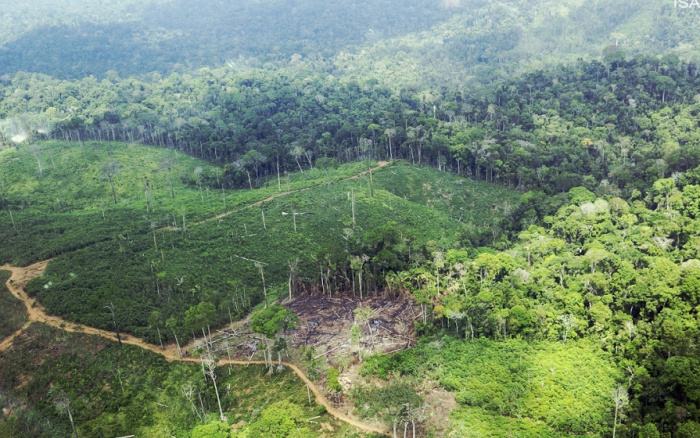Bolsonaro government denounced in UN for threatening global climate and violating human rights in Brazil
Civil society organizations claim that deforestation and violence against indigenous peoples and traditional communities intensify climate change
 Área desmatada na Terra Indígena Cachoeira Seca, onde vivem os Arara (Foto: Juan Doblas-ISA)
Área desmatada na Terra Indígena Cachoeira Seca, onde vivem os Arara (Foto: Juan Doblas-ISA)
Five United Nations special rapporteurs received on Tuesday, November 15, a complaint against the Bolsonaro government for environmental destruction and human rights violations. According to the complaint, the uncontrolled increase in deforestation in the Amazon and the Cerrado region, together with the violence against indigenous peoples and traditional communities, is intensifying climate change, threatening biodiversity and compromising food, health and access to water across Brazil and in several other countries.
The complaint is being delivered to the UN special rapporteurs responsible for monitoring issues related to the environment, indigenous rights, climate change, food, safe drinking water and sanitation, development and housing, in addition to the chair of the working group on business and human rights. The large number of UN special rapporteurs receiving the document reflects the scope of the complaint, which covers the impacts of deforestation on the rights of indigenous peoples and other local inhabitants, the wider population in Brazil and Latin America and the people around the world.
The central argument of the complaint is that, to guarantee people’s right to a healthy environment, the destruction of natural ecosystems – particularly the Amazon – must stop immediately and the rights of indigenous peoples and traditional communities must be respected. Drafted by a group of Brazilian non-governmental organizations, the document calls on the government to stop environmental destruction in Brazil, respect the rights of indigenous peoples and traditional communities and update the country’s Nationally Determined Contributions (NDCs) to represent its “highest possible ambition”. To do this, in addition to not approving any legislation that promotes or facilitates deforestation, it will be necessary to implement an Action Plan to prevent deforestation, resume the work of the environmental watchdog IBAMA, reactivate the Amazon Fund, restore the budget of the Ministry of the Environment and reintroduce the policies for the management of indigenous territories. Although the UN special rapporteurs on human rights and the environment cannot force the Brazilian government to act, they can recommend that it does so.
Read more
The document points out that the Amazon, the largest tropical rainforest on the planet, is fast approaching its point of “no return”, a situation in which it would no longer be able to regenerate from the aggressions caused by human beings. Large tracts of land have already been deforested, and deforestation rates during the Bolsonaro administration are at their highest level in more than 15 years. These attacks on the forest and the people who live there pose real threats to the lives of the population of South America and the world in general. The Amazon is fundamental for global nature, as 10% of the world’s species are found there, as well as for the climate, as it is responsible for rainfall patterns throughout South America and for regulating the global climate.
Scientific evidence shows how close we are to the risk of reaching a tipping point in the Amazon. Scientists calculate that a loss of between 20% and 25% in native vegetation is the point at which the Amazon rainforest will lose its ability to maintain its original composition and transform into a more degraded and less resilient ecosystem. Deforestation rates in the Brazilian Amazon are already close to 20%. In addition to the loss of biodiversity, such a change would affect the forest’s ecosystem services, such as aerial rivers, which play a key role in rainfall patterns throughout Brazil. The release of carbon, if this tipping point is reached, places the 1.5 degree Paris Agreement climate target out of reach.
The complaint was signed by APIB (Association of Indigenous Peoples of Brazil), Conectas Human Rights, ISA (Socioenvironmental Institute), Climate Observatory and WWF-Brazil. To read the document in full, click here.






